June 24, 2024
The construction industry has long been plagued by inefficiencies and manual labor-intensive processes. However, with the advent of AI-powered business management software, construction companies can now automate their workflows, streamline business operations, and improve productivity.
Artificial Intelligence (AI) has revolutionized the way businesses operate, providing a competitive edge in today's fast-paced digital landscape. According to a recent survey, 37% of firms have already implemented AI in some form, with a significant increase of 270% over the last four years.
As AI continues to evolve, it is transforming the way construction companies manage their operations, making it essential for the industry to stay ahead of the curve.
What is AI-powered business management software?
AI-Powered Business Management Systems are tools that use artificial intelligence (AI) to help businesses run more smoothly and efficiently. These systems can handle various tasks like managing inventory, customer service, marketing, and finances. Here's a simple breakdown:
Key Features:
Automation: An AI-powered business management tool can automate repetitive tasks, saving time and reducing errors.
Data Analysis: AI analyzes large amounts of data quickly to help businesses make informed decisions.
Customer Insights: They can track customer behavior to offer personalized recommendations.
Inventory Management: This complete business management software can predict stock levels to avoid overstocking or running out of products.
Document Management: AI helps organize and retrieve documents quickly and accurately.
Robust Project Management Tools: These tools assist in planning, executing, and completing projects on time.
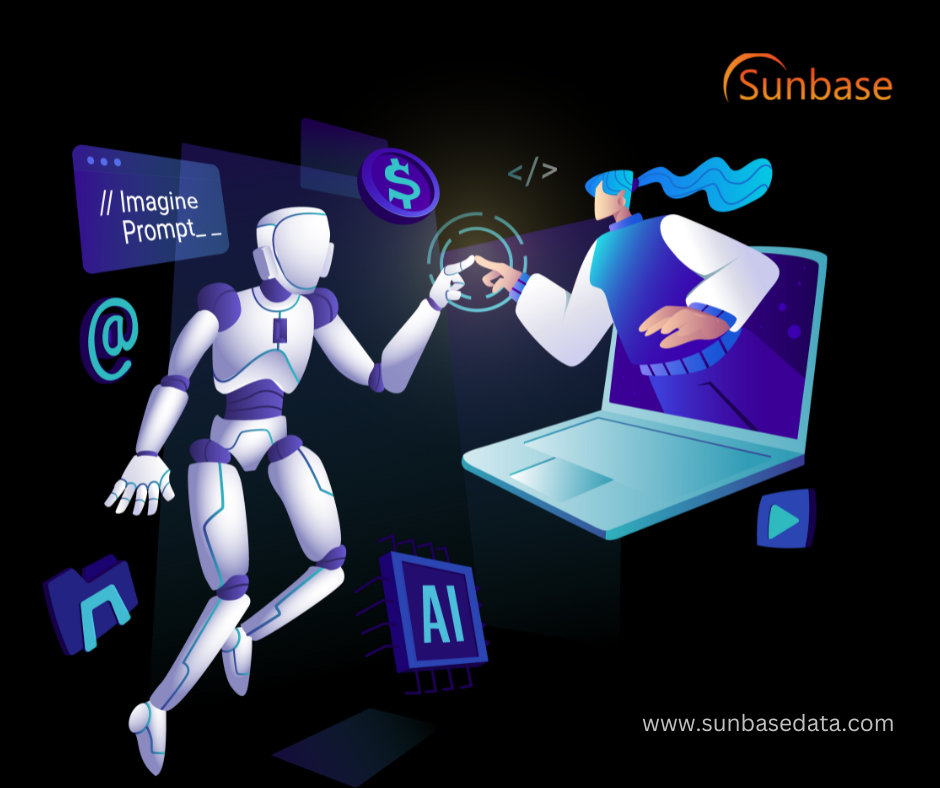
Benefits:
Increased Efficiency: Companies using AI report up to 40% faster processing times.
Cost Savings: Businesses can save up to 20% on operational costs.
Better Customer Service: AI can handle 24/7 customer inquiries, leading to a 30% improvement in customer satisfaction.
Examples:
Chatbots: These are AI-powered virtual assistants that can answer customer questions instantly.
Predictive Analytics: Artificial intelligence can predict sales trends, helping businesses plan for the future.
Automated Scheduling: Cognitive Computing can manage employee schedules, ensuring optimal staffing levels.
Supply Chain Management: AI optimizes the flow of goods from suppliers to customers, improving efficiency and reducing delays.
Ready to streamline your construction management? Learn More about how an integrated solution can transform your projects! Read our blog: Juggling Multiple Tools? Simplify Your Construction Management with One Solution
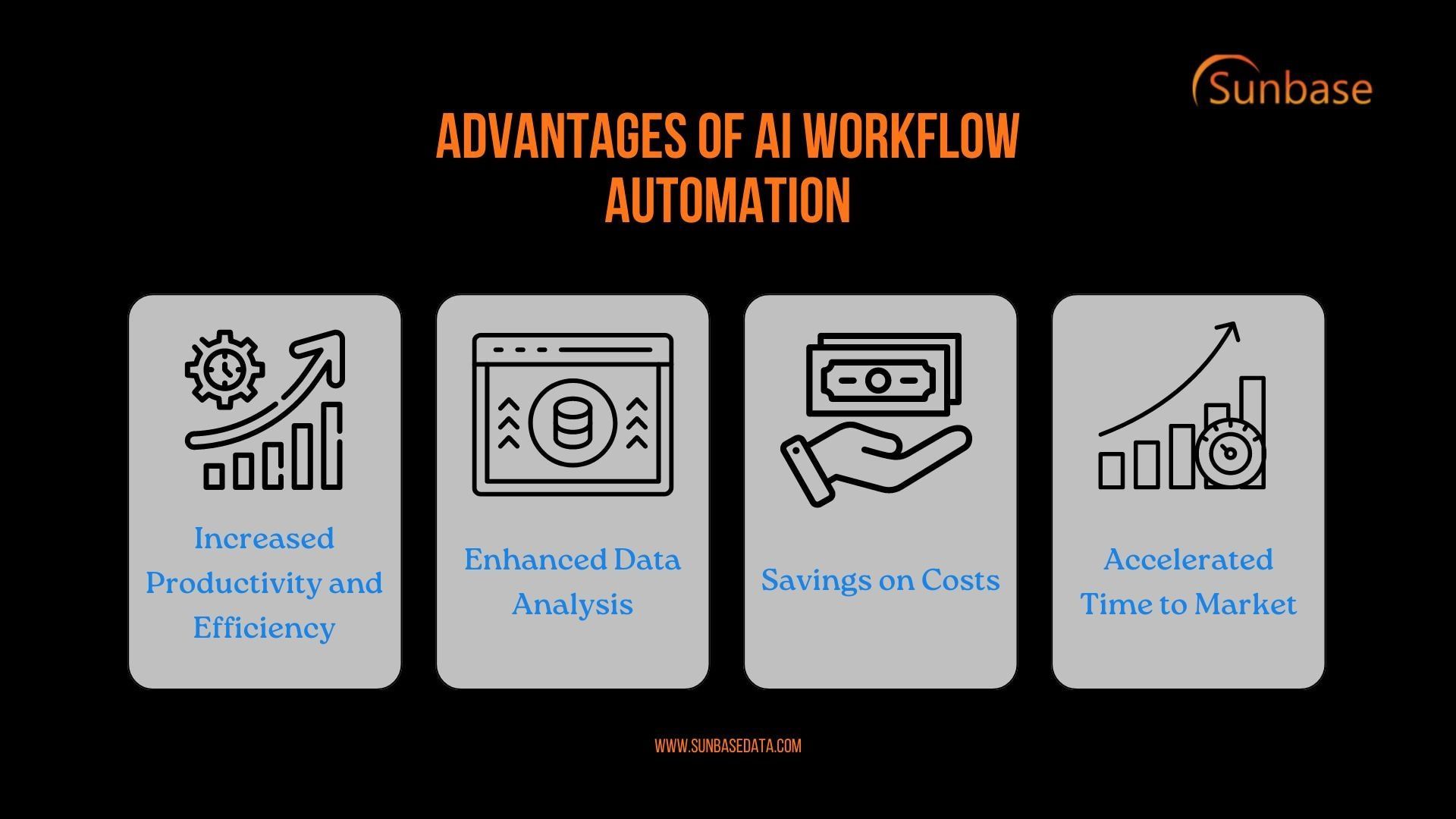
How AI is Automating Construction Workflows?
AI-powered business management software is bringing about a transformation in the construction industry, which was previously dependent on human operations.
Let's see how AI streamlines business processes at different phases of a construction project:
A. Pre-Construction Phase
1. Site planning and optimization
Artificial intelligence systems evaluate information like as terrain, soil properties, and current infrastructure to provide ideal site arrangements that save construction costs and time.
Predictive models employ historical data, such as scheduled start and end dates, to create realistic schedules for upcoming projects.
AI enables employees to remotely access practical training materials, enabling them to rapidly improve their knowledge and abilities. As a result, onboarding new resources to projects takes less time. Project delivery is accelerated as a result.
2. Better generative design
Architects, engineers, and construction specialists can plan, design, and manage buildings and infrastructure more effectively with the help of Building Information Modeling (BIM), a 3D approach.
It ensures that multiple models do not clash by taking into account team activities and plans related to architecture, engineering, mechanical, electrical, and plumbing.
To find and mitigate conflicts between different models and avoid rework, the construction sector uses generative design powered by AI. The program creates design alternatives and investigates multiple versions of the solution.
After the user specifies the parameters, the program builds 3D models that are optimized for the demands, learning from every attempt until an ideal model is generated.
3. Material procurement and cost estimation
Even with the greatest project teams, the majority of megaprojects exceed their budgets.
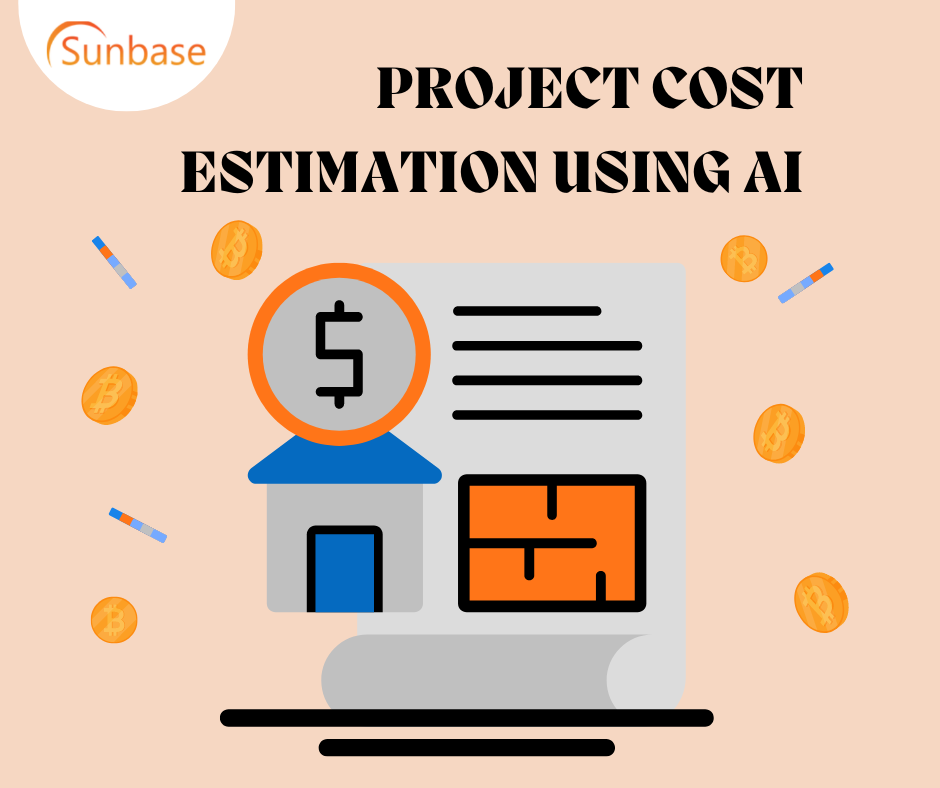
Artificial Neural Networks are utilized in projects to estimate cost overruns according to variables including project size, contract type, and project managers' expertise level.
AI analyzes material requirements using project schedules and current market data, facilitating precise cost calculations and effective purchasing procedures.
B. Construction Phase
1. Automated scheduling and resource allocation
AI-powered business management tools analyze past project data, staff capabilities, and material availability to enhance scheduling, task management, and resource allocation. This analysis creates optimized schedules that ensure project completion on time, reduce idle time, and maximize resource use.
AI business management system efficiently distributes crew members and equipment across jobs according to their skill and capability, guaranteeing effective completion and preventing resource overuse or underutilization.
2. Real-time progress tracking and monitoring
Materials and equipment with integrated sensors allow for real-time progress monitoring. This sensor data is analyzed by AI to produce a clear picture of the project's progress.
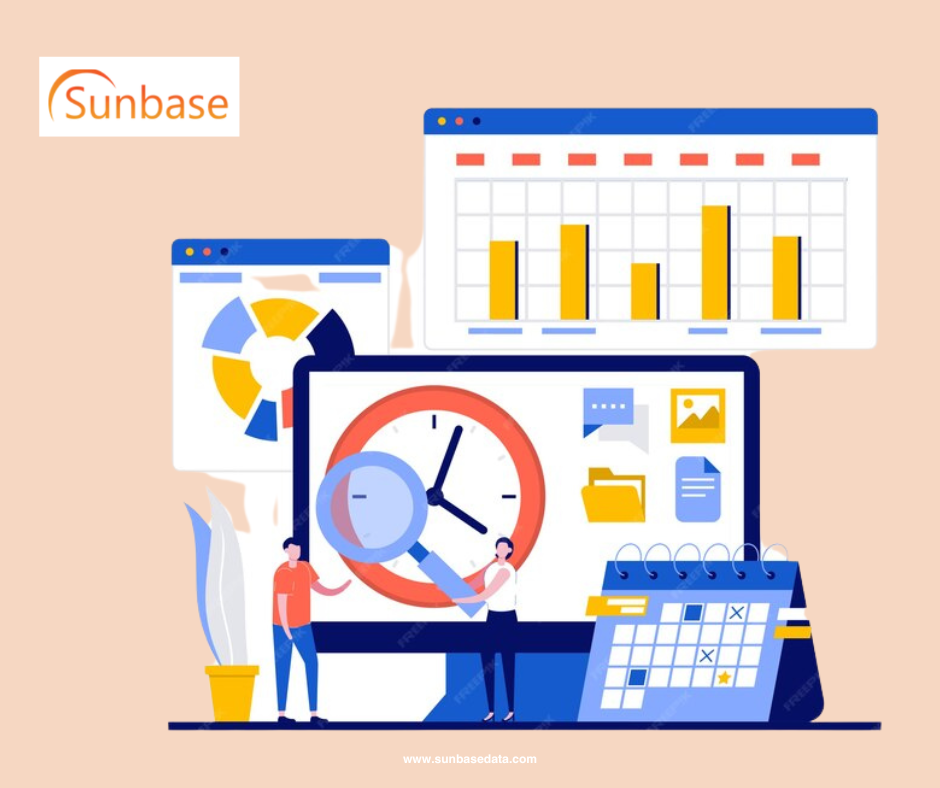
Best business management software enables contractors to track material usage, recognize completed jobs, and discover deviations from plans by analyzing images taken at the job site.
3. Risk prediction and mitigation strategies
There is always some risk associated with building projects. These risks can be related to quality, safety, scheduling, or finances.
Since more subcontractors are working on different things simultaneously on job sites, the larger the project, the greater the danger.
General contractors can now monitor and prioritize risk on the job site with AI and machine learning business management software solutions, freeing up the project team's limited time and resources to concentrate on the highest-risk areas.
4. Ensuring safety during construction
Compared to other workers, construction workers had a five-fold higher risk of death on the job, with falls accounting for the majority of deaths in the private sector.
An algorithm created by a construction technology company in Boston examines job site images to identify potential safety risks, including workers not wearing safety equipment and compares the results with accident reports.
This technology may be used to rate projects according to risk, enabling safety briefings to be held in situations where a high threat is identified.
C. Post-Construction Phase
1. Operation and performance insights
An AI-powered business management system could be utilized to analyze data to improve energy efficiency, indoor air quality, and other performance indicators.
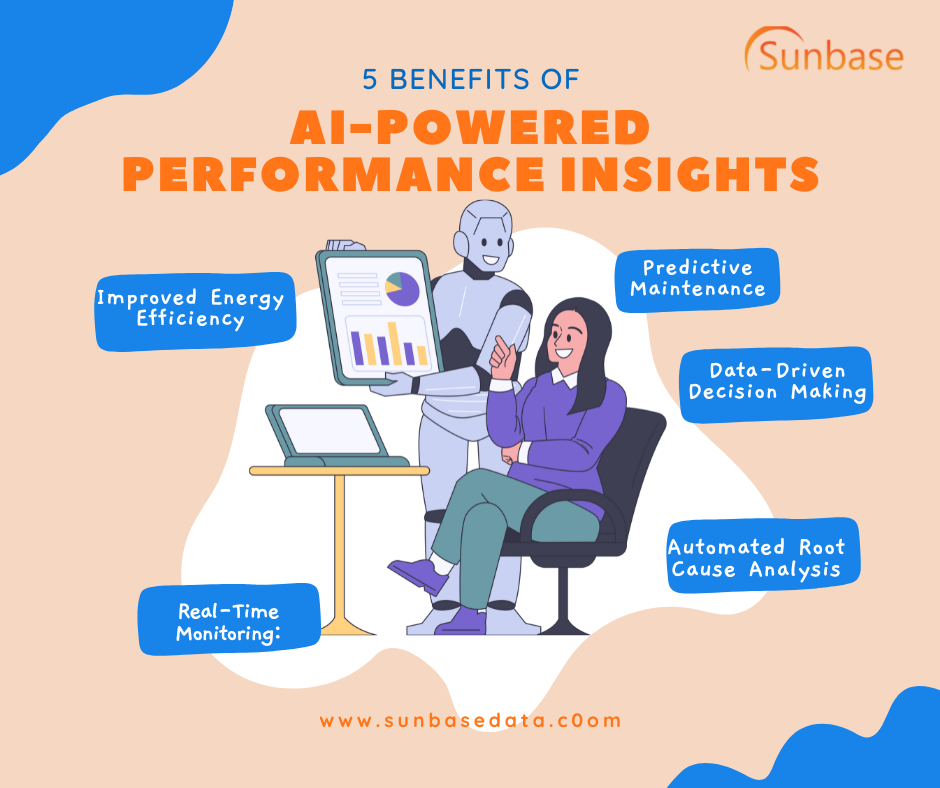
Through the utilization of sensors, drones, and other wireless technologies to gather data about a structure, sophisticated analytics, and AI-driven algorithms can gather important insights about the operation and effectiveness of buildings, bridges, roads, and nearly anything else in the construction sector.
2. Predictive maintenance
AI is useful for the management of buildings even after construction is finished.
AI can evaluate data from building systems, like the HVAC and electrical systems, to project future maintenance needs and avoid equipment failure.
Read How All-in-One Construction Software Empowers Your Team
What is the future of AI in Construction Management?
Building expenses can be lowered by up to 20% with the use of robotics and artificial intelligence. Engineers can send mini-robots into structures that are still under construction while wearing virtual reality goggles.
These robots track the task as it is done using cameras. Modern buildings employ artificial intelligence (AI) to plan the routing of their plumbing and electrical systems.
Even if there are forecasts of massive job losses, AI is not expected to replace workers. Rather, it will change how the construction sector does business, cut down on costly mistakes, lower injuries at work, and improve building operations.
The areas where AI can have the biggest influence on their company's particular demands should be the top priorities for leaders in the construction industry.
Read our blog to learn more about The Future of Solar Construction Communication: Streamline Collaboration with an All-in-One Platform.
How does Sunbase Software improve construction workflows?
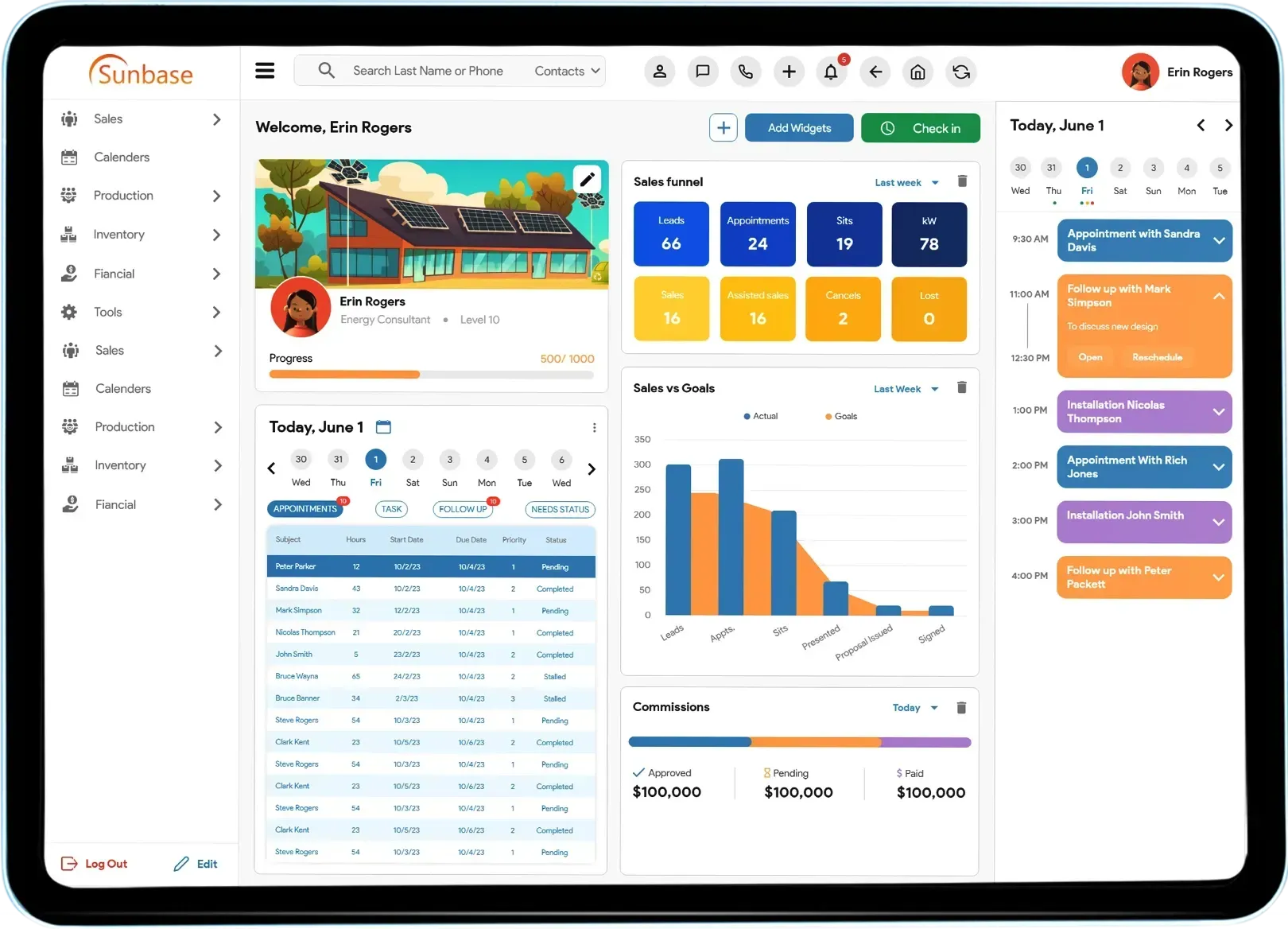
Sunbase Software is one of the top business management software for businesses in the construction industry since it automates and enhances workflows. Here are some of its key features:
1. Project Management Software
Sunbase provides project management tools that centralize data, automate tasks, and optimize workflows. This eliminates the need for manual data entry and switching between spreadsheets, saving time and reducing errors. Teams can stay organized, prioritize activities, and meet deadlines using Sunbase's all-in-one platform.
2. Precise Proposal Generation
With its many features, Sunbase Proposal Software makes the process of generating and handling proposals easy. With pre-built templates and customizable content, users can quickly and easily create professional proposals. This guarantees the accuracy and consistency of every proposal ensuring financial clarity.
3. Customer Relationship Management (CRM)
Construction companies can nurture and oversee customer relationships with the use of Sunbase's CRM software.
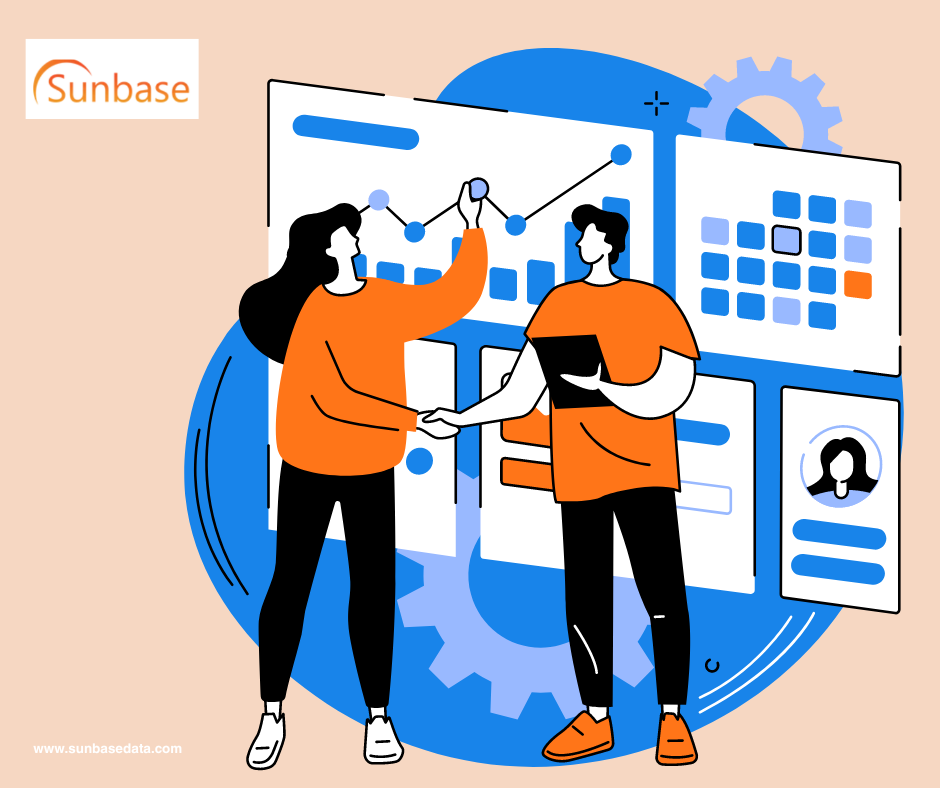
This involves using a single platform to manage leads, bids, contracts, and communication. This enhances the general customer experience and cultivates closer ties with customers.
4. Better Communication and Collaboration
Sunbase makes it easier for teams to collaborate and communicate with each other. All project information is centrally located, allowing for easy document and plan sharing and real-time access to updates for every stakeholder involved. This minimizes miscommunications, shortens turnaround times, and overall boosts project productivity.
5. Data-Driven Decision-Making and Improved Project Outcomes
Sunbase offers essential tools for data analysis and generating reports. This gives building businesses the ability to make informed judgments at every stage of the project. Through early detection of trends and possible issues, businesses can reduce risks and improve project outcomes.
6. Solar Design Software
This software simplifies the design process for solar installations by enabling users to create precise solar panel layouts, simulate energy output, and ensure compliance with local regulations.
This can significantly lower design time and costs, as well as assist in ensuring that solar projects are tailored for optimal efficiency and ROI.
Sunbase enables construction teams to work together easily and achieve best results.
In a nutshell
With the growing integration of AI-based tools and processes into workflows, the future possibilities for AI in the construction sector are bright.
Artificial Intelligence (AI) is anticipated to become an increasingly important component of construction as technology develops, contributing to increased productivity, lower costs, and better building performance results.
As the construction sector continues to evolve, AI business management software is expected to play a more crucial role in shaping its future. It has enormous potential to revolutionize the sector, and its implementation is projected to expand rapidly in the upcoming years.
About Sunbase
Sunbase goes beyond project management by providing a comprehensive set of solutions for automating workflows, improving communication, and enabling data-driven decision-making.
Sunbase All-in-one Software offers services like Project Management Software, CRM, Proposal Software, Solar Design Software, and many more that assist construction companies in streamlining their operations.
FAQ's
1. How does Sunbase's All-in-one project Management Software support construction teams?
Sunbase All-in-One Project Management Software helps construction teams by providing essential tools like project management, proposal software, PV design, and CRM. Additionally, it can integrate seamlessly, minimizing disruption to existing workflows and enabling it to fit into any system.
2. What are the features offered by AI-powered software right for construction companies?
Here's a list of all the features offered by AI business management software for the construction industry: Automation, Data Management, Predictive Analytics, Optimized Resource Management, Project Management, Estimating and Cost Management, CRM and Sales Management, Accounting and Financial Management, and Safety Management.
3. How much does a business management software cost?
The functions provided, the number of users, and the size of your business all affect how much AI-powered building software costs. Many providers offer tiered pricing options, allowing you to select a solution that is within your budget.
The initial investment in AI-powered corporate management software might be high. However, automation's long-term benefits and increased efficiency can result in considerable cost savings.
I agree to receive marketing messaging from Sunbase at the phone number provided above. I understand data rates will apply, and can reply STOP to OPT OUT.







